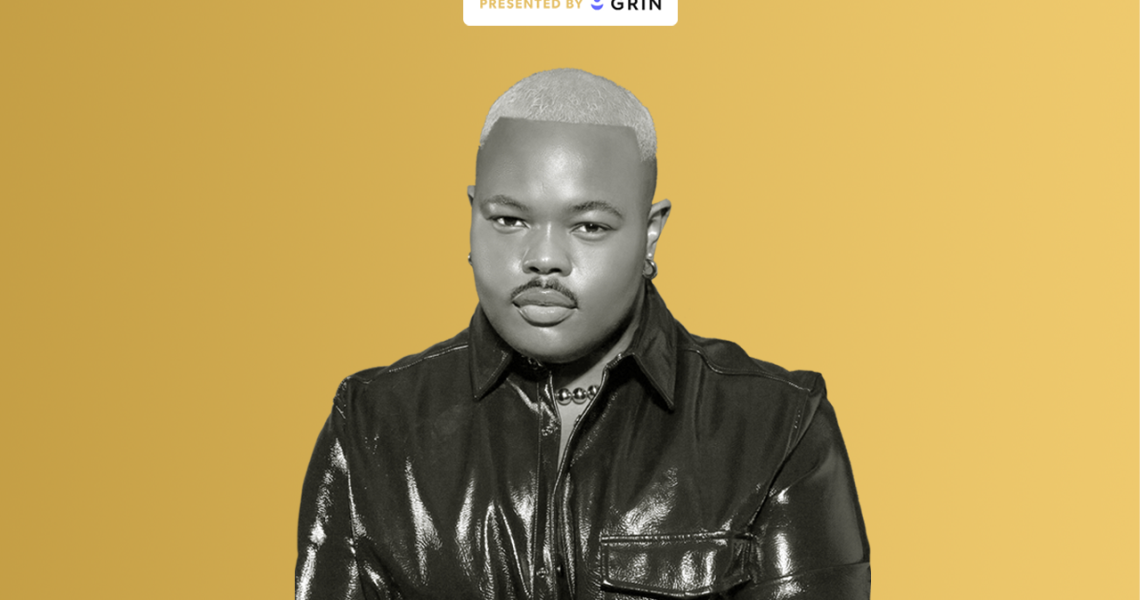This is an episode of the Glossy Beauty Podcast, which features candid conversations about how today’s trends are shaping the future of the beauty and wellness industries. More from the series →
Subscribe: Apple Podcasts | Stitcher | Google | Spotify
Like many of the hopeful young adults before him, Sean Garrette, an esthetician and influencer, moved to New York with his sights set on a career in fashion. But when his dreams to be a fashion editor or stylist didn’t work out, he leaned into the beauty space, which he found to be “more inclusive.”
“You didn’t have to be super-skinny or super-rich to fit into the beauty space. It was all about your creativity, your knowledge and your skill,” said Garrette on this week’s episode of the Glossy Beauty Podcast.
Since then, Garrette has amassed 158,000 cumulative followers across Instagram and Twitter, an esthetician license, and partnerships with some of the top skin-care brands like Paula’s Choice and Fenty — the latter branched into the skin-care world in June 2020. His journey to becoming an esthetician, and later a ‘skinfluencer’, was fueled by his need to fill a “void” that he saw within the skin-care industry.
“There weren’t many people talking about skin care that was specifically focused on treating Black skin and skin of color,” said Garrette, who began to work as an esthetician in a spa in 2016 before quitting three years later to start his own business.
Garrette began to build his social media presence by posting facials and clients’ before-and-afters, and contributing to the skin-care conversation online. In the “Last 3-4 years, skin care has taken over the conversation,” said Garrette. He attributed the success of his business, in part, to social media and hopes to tap back into the tangible aspect of his business with spa pop-ups in the near future.
Ad position: web_incontent_pos1
Regardless of where his career takes him, whether that be on social media or in the spa, “My focus and passion will always be treating black skin and treating people of color,” said Garrette. “We’re still marginalized in the health and beauty spaces.”
Below are additional highlights from the conversation, which have been lightly edited for clarity.
Covid-19 and Fenty Skin
“I had great brand deals and things lined up for 2020 that I was excited about. But, because of the pandemic, everything got pushed away. Fenty was a blessing for me because it got me to take all of those things I was doing with other brands and put it into one brand that I loved and that had a message that I wanted to be a part of. It was a full-circle moment for me. And I honestly think 2020 for me was the year of everything I’ve been manifesting for and praying for coming to a head; everything came to fruition that year. Because when Rihanna announced Fenty Beauty, I was working as a makeup artist, but I knew that it wasn’t my passion. [I said,] ‘If she ever does a skin-care component, I have to be a part of it.’ I knew that was my destiny.”
The importance of transparency
“Before, influencers always felt like they had to put on this facade of being perfect. That’s kind of gone away. With the pandemic happening and us still being in the midst [of it], putting on those airs and facades doesn’t work for people. They want to see that you have daily struggles, as well, and that you’re not always the happiest, that you deal with heartbreak and depression and sadness. And that’s what has brought my little community that I call the ‘Skin Dolls.’ We have almost like a friendship. They feel like they know me because I’ve been so honest and transparent about things in my life, about things in my business. I’m always authentic about my content. If I hate something, they’ll know it. If I love it, I’ll never shut the hell up about it. And it just creates that bond with my audience.”
Owning his spaces
“People like Hyram — he has a specific audience. That works for him, and I have an audience too that works for me. But sometimes I feel a little odd on TikTok, because I don’t do the dances and I don’t do the challenges. My aesthetic is clean and curated, and TikTok is not that. It’s off the cuff, it’s fun and bright. I try to keep it light. With Twitter, there was a whole movement; last year, Black estheticians on Twitter created all of the important skin-care conversations. We would see our Tweets go viral, and then publications take them and make them into an article and not include any of us in the conversation. That was a very hard pill to swallow. Now, the conversation has shifted, because we’ve made it a point [that] we’ve created this [conversation], and we’re included in more things.”




